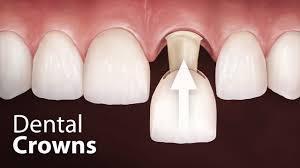
Dentistry is a critical field that goes beyond just the aesthetics of a beautiful dentist smile. A dentist’s role extends to ensuring the health and functionality of your teeth and gums, and even impacts your general health. Oral health is a window into overall health, with emerging research linking oral diseases like gum disease and cavities to a variety of systemic conditions such as diabetes, heart disease, and respiratory issues.
Understanding Dentistry
Dentistry encompasses the study, diagnosis, prevention, and treatment of dental and oral diseases. It covers a wide range of practices, including routine cleanings, fillings, crowns, braces, and more complex treatments such as root canals, oral surgery, and prosthetics. While most people associate dentists primarily with routine checkups or treatments for cavities, they are actually key players in the prevention of a host of other health issues.
A dentist’s role is diverse, and their training and expertise are crucial for not just treating oral diseases, but also guiding patients toward healthier habits. They may also collaborate with other medical professionals to manage conditions that overlap between oral and systemic health.
The Preventive Aspect: Why Regular Visits Matter
Prevention is a core aspect of modern dentistry, and regular visits to the dentist for checkups and cleanings are essential. Plaque buildup on teeth can lead to cavities, gum disease, and bad breath. However, over time, plaque hardens into tartar, which can only be removed by professional cleaning. Without regular maintenance, tartar can damage gums and lead to tooth loss.
Dentists are also equipped to spot the early signs of oral cancers, abnormal tissue growth, and other potentially severe conditions that might not show symptoms at first. Catching these issues early can be life-saving. Furthermore, with innovations like digital X-rays, dentists have the ability to detect problems beneath the surface of the teeth, leading to more effective and less invasive treatments.
Treatments Beyond the Basics
While many people visit the dentist for basic cleanings and fillings, the field of dentistry offers a wide variety of treatments to help patients improve their health and quality of life. These treatments often blend both aesthetics and function:
- Cosmetic Dentistry: This involves procedures such as teeth whitening, veneers, and bonding to improve the appearance of a person’s smile. Though largely aesthetic, cosmetic dentistry can boost self-confidence, encouraging people to take better care of their oral health.
- Orthodontics: Dentists trained in orthodontics use braces, clear aligners, and other appliances to straighten teeth, correct bite issues, and improve the overall function of the mouth. Orthodontic care can significantly impact both oral health and a person’s appearance.
- Periodontics: Periodontists specialize in treating diseases of the gums and the bone structure that supports the teeth. Gum disease can lead to tooth loss if left untreated, making periodontic care critical to long-term oral health.
- Prosthodontics: These specialists work on restoring or replacing teeth that are missing or severely damaged. Prosthodontic treatments include dentures, crowns, bridges, and dental implants.
- Oral Surgery: Oral surgeons manage more complex cases that might involve removing impacted teeth, reconstructing the jaw, or treating conditions such as temporomandibular joint (TMJ) disorders.
The Connection Between Oral Health and Overall Health
Dentists do more than just clean teeth. Emerging research suggests that oral health is intricately linked to overall health. Conditions like periodontal disease are associated with an increased risk of systemic issues like heart disease, diabetes, and stroke. The mouth can harbor bacteria that, when left unchecked, can enter the bloodstream and contribute to inflammation in other parts of the body.
Additionally, oral health impacts digestion and overall nutrition. Issues such as missing teeth or misaligned jaws can make chewing difficult, potentially leading to problems with nutrition. Dentists are able to address such concerns by providing dental implants or appliances that restore normal function.
Promoting Good Oral Hygiene Habits
Dentists are not only concerned with treatment—they are also educators. They play a vital role in teaching their patients about proper oral hygiene practices to avoid preventable dental problems. Brushing at least twice a day, flossing daily, using mouthwash, and avoiding sugary foods and beverages are foundational habits that can reduce the risk of dental decay, gum disease, and more serious oral health issues.
A dentist’s advice doesn’t stop at their office; they encourage habits that last a lifetime, ensuring the longevity of a patient’s teeth and gums. In fact, a dentist can help you establish a preventive care plan tailored to your specific needs, taking into account factors like age, diet, lifestyle, and any previous dental conditions.
The Future of Dentistry
Advancements in dental technology have revolutionized the profession in recent years. From digital X-rays that reduce radiation exposure to lasers used in procedures such as cavity treatment and gum reshaping, the tools at a dentist’s disposal are continually evolving. Moreover, innovations such as 3D printing are changing how prosthetics like crowns and dentures are made, enabling faster and more accurate fittings.
The future of dentistry also includes the growth of telemedicine, allowing patients to consult with dentists remotely. This trend has the potential to improve accessibility to dental care, especially for people in underserved areas or those who are unable to visit a dental office regularly.
Conclusion
The dentist’s role is far-reaching and goes well beyond providing fillings or performing cleanings. They are health advocates who not only restore smiles but also protect and preserve the overall health of their patients. Good oral health is an integral part of overall well-being, and regular visits to the dentist can help prevent serious health complications down the road.
For optimal health, it’s important to view your dentist as a partner in wellness—someone who can offer invaluable advice and services to help you maintain a healthy mouth and, by extension, a healthy body. Don’t wait for a problem to arise; prioritize your dental health today, and it will pay dividends for years to come.
